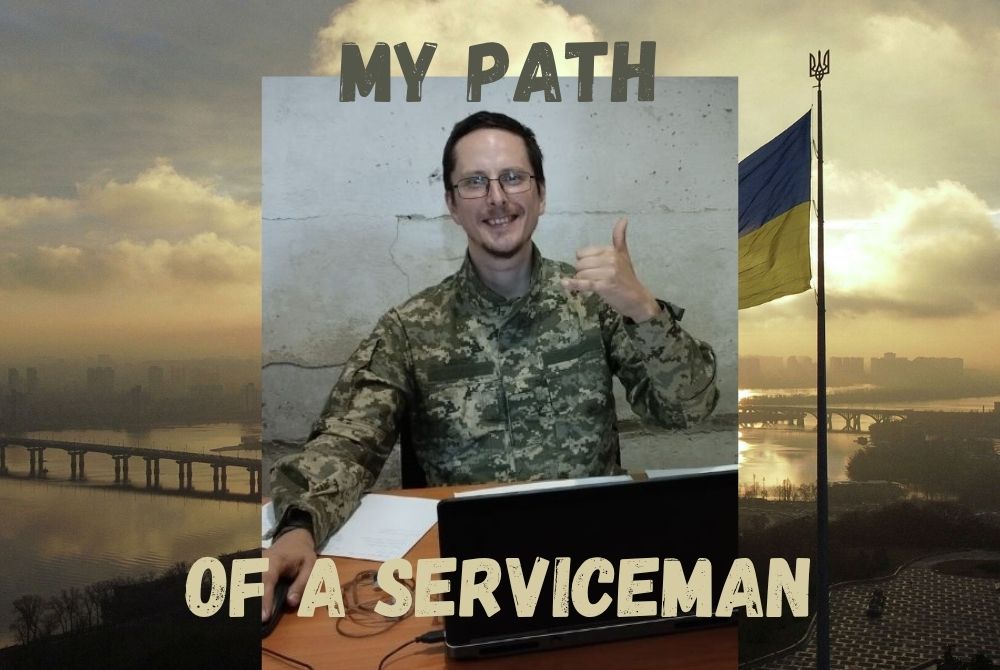In today’s post, I wanted to share an interesting phenomenon that I saw. I can’t say for sure that this is the case everywhere, I can only speak for our battalion, because that’s the only one I’ve seen from the inside. But, for some reason, I think that things are similar in other units.
As you can see from the title, I called this phenomenon “the Cossack spirit of equality in the Armed Forces of Ukraine.” What do I mean? When I studied Ukrainian history a little, I heard that the Cossacks had such a spirit of equality and respect for one another. This led to another phenomenon, as the Cossack proverb says, “He is not a Cossack who does not think of becoming an otaman,” but that is another topic. In other words, history told us about the spirit of equality among the Cossacks. Was this true? We cannot know for sure. For my part, I will share what I now see with my own eyes in the Armed Forces of Ukraine.
In fact, I encountered a situation that I simply did not expect. Well, that was my impression from the movies in which I saw the military (well, where else could I see them?). In movies, we see that there are simple soldiers, yes, they are simple guys. But generals are such important guys, walking around in shiny shoes, with lots of epaulettes, looking very important, etc. And in general, we often saw in movies this saluting, this servility before generals, colonels, etc. Yes, of course, looking back now, we understand that most of these stereotypes and ideas were seen and taken from Soviet or Russian films. And Ukrainian ones? There weren’t really any Ukrainian ones, but that’s another topic.
And so the debunking of the myth began in training. We asked our instructors how we should address them correctly, by rank or by first name. And they replied, “Just call them by their first name or call sign.” And seeing the “incomprehension” and non-acceptance of this turn of events in our eyes, they said, “You can add the word ‘sir,’ ‘Mr. Oleksiy,‘ ‘Mr. Sky,’ etc.” Some instructors said on principle, “Don’t call me sir, just call me friend, ‘Friend Dim,’ and that’s it.”
“Well, okay, they were just instructors, ordinary people, but lieutenants or colonels! That’s probably a different case,” you might say. I thought so too. Well, let’s move on. I’ll say right away — yes, I’ve had the opportunity to communicate and interact with colonels, senior lieutenants, etc. Well, it’s not like we were drinking together, but I did have some experience communicating and interacting with them.
And what did I see? Well, I didn’t see any of those imaginary men with shiny polished shoes, etc. Although, you know, I had a very interesting experience, which I will now share with you. One of the colonels gave me the task of preparing an Excel spreadsheet with certain information. In order to provide it, I needed to have the birthdays of the military personnel in our unit. Ideally, this information should have been in the roster, but it wasn’t in our roster. So I called him and told him that our roster didn’t have this information 🙂 I remember that he was a little surprised, even disoriented for a moment, that I was telling him this so directly, and he said, “Sergey, you’re new here and you need to understand that when you talk to a colonel, you shouldn’t tell him straight up that you don’t have something, that you haven’t done something. You need to say it differently.” In other words, when I told him that, it probably awakened a certain “stick” in him that was ready to tear me apart for saying such things. But! But there was also a normal person in him. Yes, a simple person who understands what it means to be new and what it means to not have had time to do something. His voice when he said this was fatherly and kind. And then, in army style, he said that if I wanted to, the table had to be ready by 9:00 the next day. Well, this is the army, and the table was ready at 8:00 the next morning 🙂
That is, I did not see any increased demands on myself from colonels and lieutenants. Increased demands on the tasks set – yes! And the higher-ranking a person is, the more demanding they are of the tasks set. For example, do you know how most of us greet the battalion commander? With fists. Yes, with fists, you know, like when you hit someone’s fist with your fist. And the chief of staff personally drove my colleague, a clerk (a newbie like me), to the barber to get a haircut. Chief of Staff Karl! (Not in the sense that his name was Karl… you get the idea). Yes, yes, of course, it was on the way to other business, of course, he wouldn’t have taken him to the barber purely for personal reasons. But that doesn’t change the essence. And then he made sure that they brought me a clipper and I cut my own hair. Those mythical generals with their shoes and epaulettes certainly don’t do that.
I remember how the chief of staff (let’s call him Bogdan) gave me the task of making a document, and I had to put a corner stamp on it. I did it, but it came out stretched (I didn’t set the margins correctly). And when he checked it, he said, “Yakov, it looks like someone shit on it,” and wrote “Someone shit on it” in red pen opposite my stamp. I went to redo it, and then did it correctly, to which the chief of staff said, “See, you can do it when you want to.” Another example: the deputy chief of staff addresses me formally. I don’t know why he does this, maybe he sees fear in my eyes and wants to cheer me up somehow.
Once again, I want to emphasize that what I have described above has nothing to do with frivolity towards the tasks at hand, with a kind of “softness” like, “You didn’t do it, well, okay, go rest.” No, when it comes to the tasks at hand, everything is very serious, but that’s a separate topic, which I will explore further in future posts.
To sum up, I would say this: it seems that there is some kind of unspoken agreement here, and all the bosses tell you between the lines, “I am your boss, but we are all equal here, we are all equal in our fight against the enemy, and you and I may die tomorrow, and in this we are equal.”




